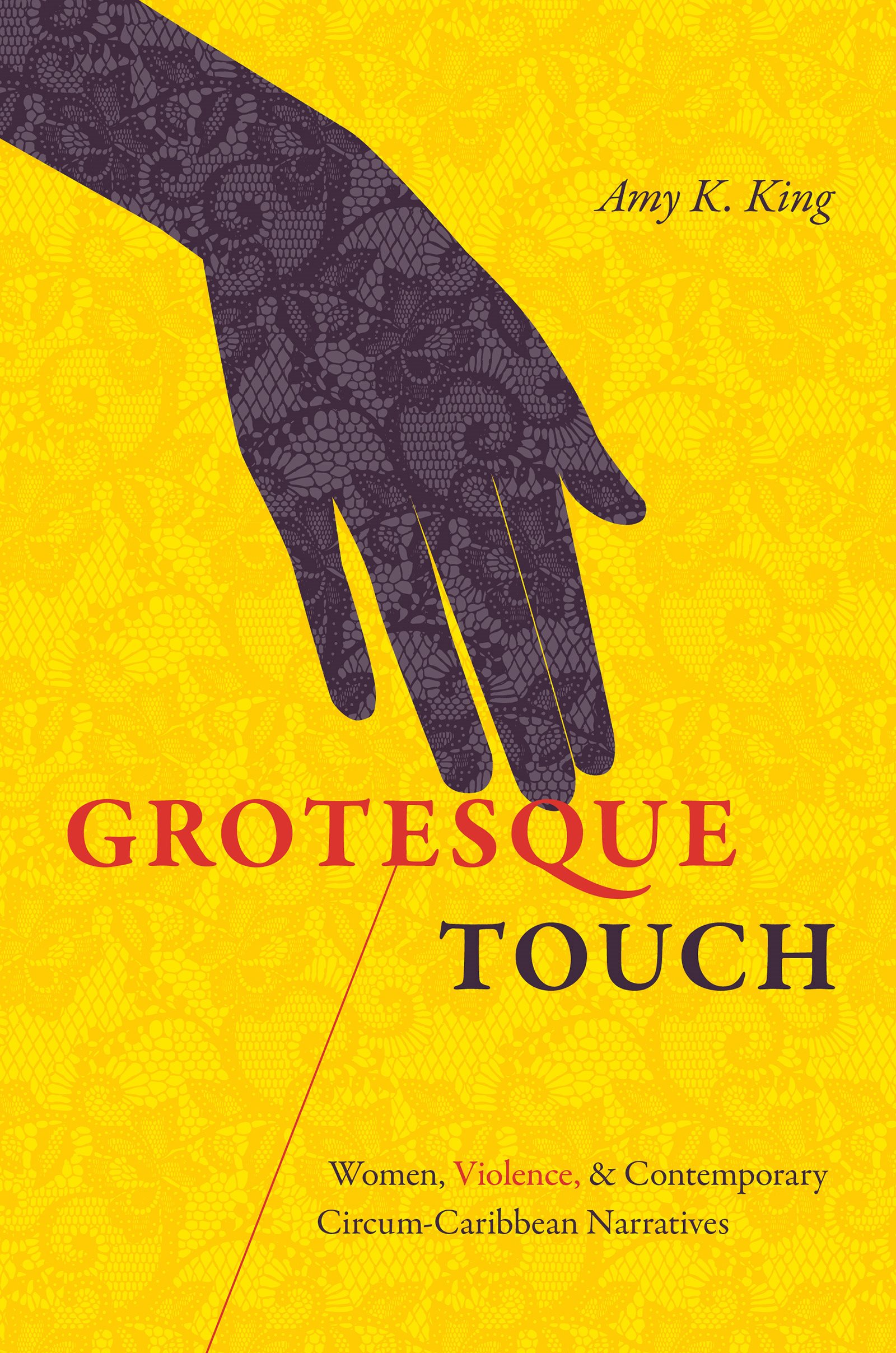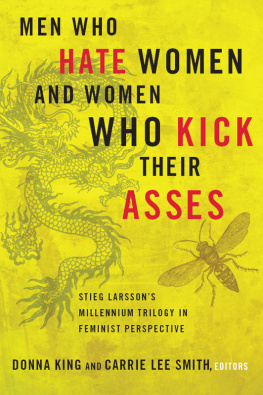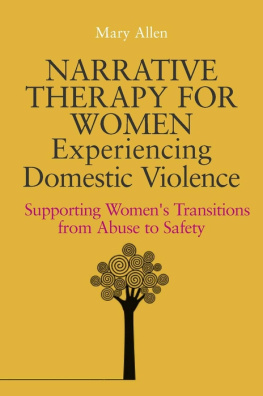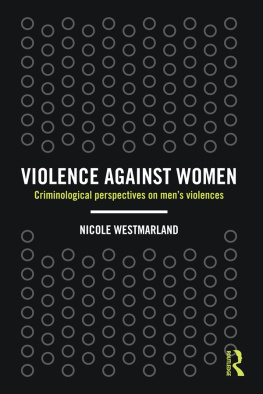Contents
Guide
Pagebreaks of the print version

Grotesque Touch
Grotesque Touch
Women, Violence, and Contemporary Circum-Caribbean Narratives
Amy K. King
The University of North Carolina Press CHAPEL HILL
This book was published with the assistance of the Authors Fund of the University of North Carolina Press.
2021 Amy K. King
All rights reserved
Set in Merope Basic by Westchester Publishing Services
Manufactured in the United States of America
The University of North Carolina Press has been a member of the Green Press Initiative since 2003.
Library of Congress Cataloging-in-Publication Data
Names: King, Amy K., author.
Title: Grotesque touch : women, violence, and contemporary circum-Caribbean narratives / Amy K. King.
Description: Chapel Hill : University of North Carolina Press, [2021] | Includes bibliographical references and index.
Identifiers: LCCN 2021026150 | ISBN 9781469664637 (cloth ; alkaline paper) | ISBN 9781469664644 (paperback ; alkaline paper) | ISBN 9781469664651 (ebook)
Subjects: LCSH: Women in popular cultureUnited States. | Women in popular cultureCaribbean Area. | Violence in women in popular cultureUnited States. | Violence in women in popular culture Caribbean Area. | SlaveryHistory. | Plantations in literature. | Plantations in art. | Power (Social sciences)
Classification: LCC P94.5.W652 U6545 2021 | DDC 810.9/3522dc23
LC record available at https://lccn.loc.gov/2021026150
Cover illustration: Lace pattern Shutterstock.com/Sylvvie.
Portions of chapter 5 were previously published in a different form: A Monstrous(ly-Feminine) Whiteness: Gender, Genre, and the Abject Horror of the Past in American Horror Story: Coven, in Womens Studies: An Interdisciplinary Journal (2017), reprinted by permission of the publisher (Taylor & Francis Ltd, http://www.tandfonline.com); and She Had Put the Servant in Her Place: Sexual Violence and Generational Social Policing between Women in Marie-Elena Johns Unburnable, in Reading/Speaking/Writing the Mother Text: Essays on Caribbean Womens Writing, edited by Paula Sanmartin and Cristina Herrera (Demeter Press, 2015).
Dedicated to student activists at the University of Mississippi and the University of North Carolina at Chapel Hill.
For leading us into the future.
Contents
Figures
Acknowledgments
Writing these acknowledgments during the COVID-19 pandemic has been a bittersweet task for me. At the same time that I am thankful for the help, insight, and community from so many people over the years, I am also grieving for the time we should have spent together. With the knowledge that I cannot express my thanks enough, I owe the successes of this project to the following people.
This book is the result of conversations started in Tim Ryans African American literature graduate seminar at Northern Illinois University (NIU). Moreover, Tims generosity modeled the kind of mentorship I wish to extend to emerging scholars. I greatly appreciate Amy Newmans and Kathleen Renks guidance during my short time theremy NIU family will always be close to my heart. Before graduate school, I was lucky enough to find faculty who would encourage my curiosity at Nacogdoches High School and Southern Nazarene University. Leann West, Peggy Poteet, Gwen Hackler, and Pam Bracken, especially, helped me have those first encounters with literature that started to dismantle what I thought I knew about the world.
I was fortunate to complete my PhD at the University of Mississippi with a committee that supported my interdisciplinary and expansive geographic and media interests, and I would like to thank Katie McKee and Leigh Anne Duck for continuing to encourage me in the years since. My project benefited from seminars with Adetayo Alabi, Deborah Barker, Martyn Bone, Jaime Harker, Sarah Lincoln, and Jay Watson, as each helped me put into conversation a variety of texts, narratives, and contexts. When I think of Oxford, Mississippi, I think of my community thereMel Anderson, Emileigh Barnes, Pip Gordon, Tara McLellan, Sara Steffen, and Sara Williams are all family to me. I would not have fared as well in the velvet ditch without them. Similarly, at Georgia Tech as a postdoctoral fellow, I especially appreciated spending time with Nihad Farooq and Susana Morris; they both model how to navigate academia in ways that affirm and build. I am grateful for friends who continue to encourage me in ways I need, which usually means laughing at myselfthank you for being there, Court Carney, Lisa Hager, Emily Kingery, Nicole Lobdell, and Amy Montz.
I have developed sections of this books argument through conversations at numerous conferences and symposia over the years. At the Futures of American Studies Institute, Elizabeth Maddock Dillons seminar group provided generous feedback on an early version of my project. I appreciated the opportunity to present at the Black/White Intimacies: Reimagining History, the South, and the Western Hemisphere Symposium at the University of Alabama. Many thanks to Trudier Harris, Cassie Smith, and Andy Crank for organizing. I also presented a (at the time) speculative portion of my conclusion during the Plantation Modernity: A Global South Symposium at Clemson University, and I would like to specifically thank Jarvis McInnis and Sharon Holland for their comments, which helped me eventually bridge various analyses. Many thanks to Jonathan Beecher Field and Lee Morrissey for bringing us all together. I have also presented portions of this project at sessions for the American Studies Association, the Association for the Study of the Arts of the Present, the British Commonwealth and Postcolonial Studies Conference, the Modern Language Association, the Society for the Study of Southern Literature, the Society of Caribbean Research (Socare), the South Atlantic Modern Language Association, the Southeastern American Studies Association, the Southern Women Writers Conference, and the West Indian Literature Conference. I look forward to once again presenting alongside, sharing meals with, learning from, and continuing to conspire with Natalie Aikens, Michael Bibler, Katie Burnett, Maia Butler, Gina Caison, Frank Cha, Amy Clukey, Andy Crank, David Davis, Matt Dischinger, Norrell Edwards, Chris Eng, Shannon Finck, Katherine Fusco, Mikal Gaines, Sarah Gleeson-White, Allison Harris, Rebecca Hill, Anna Ioanes, Jina Kim, Katie Lennard, Ebony Lumumba, Molly McGehee, Monica Miller, Amy Monaghan, Will Murray, Mark Noble, Janelle Rodriques, Stephanie Rountree, Kelly Vines, Isadora Wagner, and Jeremy Wells.
This book would not have been possible without financial support from several institutions. I was able to complete chapter 3 at a summer institute sponsored by the National Endowment for the Humanities at Elon University. I would like to thank Ann Cahill and her collaborators for organizing a thoughtful schedule; the institute helped me see the pressing importance of approaching representations of sexual violence between women seriously and carefully. More recently, a postdoctoral research fellowship in the Center for the Study of the American South and Department of American Studies at UNC Chapel Hill gave me time, space, and resources to stitch together the project as a cohesive whole. Conversations with UNC staff, students, and faculty, along with participants in the Feminisms Here & Now Conference on campus, provided invaluable insights that influenced how I framed the book. Many thanks to Malinda Maynor Lowery for our encouraging and energizing conversations. I would also like to extend my thanks to Terri Lorant for helping my funding and conference travel go smoothly. At Auburn University, I received professional development funds to edit the final manuscript, and I thank the Department of Englishs chair Jonathan Bolton and administrative support associate Donna Kent for helping me secure this funding. I would also like to thank Lucas Church, Dylan White, and the editorial and production teams at UNC Press for streamlining the process and seeing the project through to publication. The anonymous readers for my project helped strengthen the argument, and I appreciate their constructive feedback generously given at multiple stages of the drafting and revising processes.






